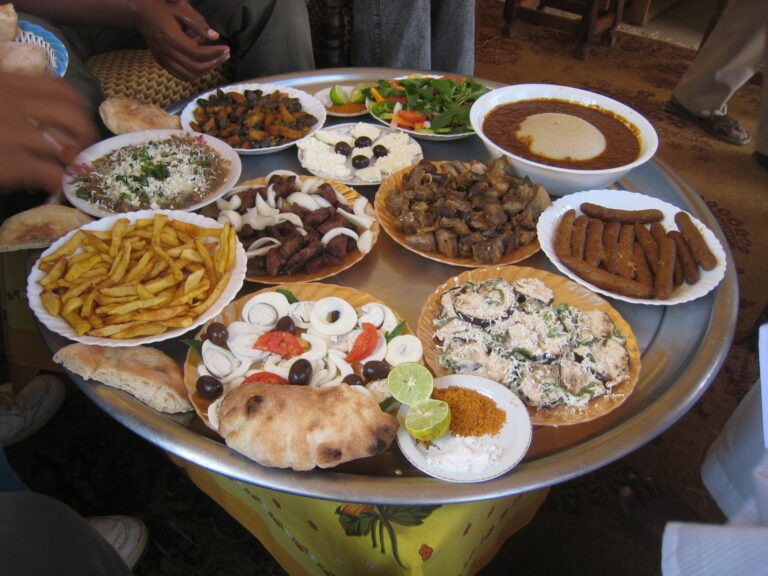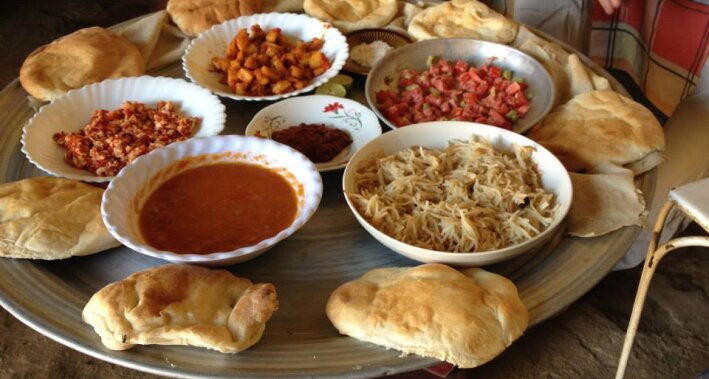Introduction: Food Customs and Dining Etiquettes in Sudan
Sudan is a country with a rich food culture, influenced by its diverse ethnic groups and regional variations. Sudanese cuisine is characterized by its use of aromatic spices, beans, lentils, and meat. Dining etiquette is also a significant aspect of Sudanese culture, to the extent that it is considered rude to eat alone or to decline food when offered. In this article, we will explore the local food customs and dining etiquettes to be aware of while in Sudan.
Eating Habits: What and How Sudanese People Eat
Sudanese cuisine is mainly centered around grains, such as sorghum, millet, and wheat, and vegetables, such as okra, eggplant, and tomatoes. Lentils and beans are also a staple, along with meat, particularly lamb and beef. Sudanese people often eat with their hands, using flatbread called “kisra” to scoop up their food. It is also customary to share food from a communal plate, which is placed in the center of the table.
Table Manners: How to Eat with the Sudanese
When dining with the Sudanese, it is essential to observe their table manners. It is common for the host to serve their guests first and for everyone to eat together from the communal plate. It is considered impolite to start eating before the host or to take more than your share from the communal plate. Additionally, it is customary to wash your hands before eating and to use the right hand for eating, as the left hand is considered unclean.
Sharing Food: The Significance of Generosity
Sharing food is an essential aspect of Sudanese culture, and it reflects the people’s generosity and hospitality. It is customary for families to invite guests for meals, and the host will go to great lengths to make sure that their guests are well-fed and satisfied. Refusing food when offered is considered impolite, and it is customary to return the hospitality by inviting the host to your home for a meal.
Religious Practices: How Religion Affects Dining
Islam is the dominant religion in Sudan, and it has a significant influence on the country’s food culture. Pork is prohibited, and alcohol is not widely consumed. During the month of Ramadan, Muslims fast during the day and break their fast at sunset with a meal called “iftar.” It is customary for Muslim families to invite their friends and neighbors to share in their iftar meal.
Conclusion: Embracing Sudanese Food and Culture
In conclusion, Sudanese food culture is rich and diverse, with a strong emphasis on hospitality and generosity. Dining with the Sudanese requires respect for their customs and traditions, such as washing your hands before eating and eating with the right hand. Sharing food is a central part of Sudanese culture, and refusing food when offered is considered impolite. By embracing Sudanese food and culture, visitors can have a unique and authentic experience of this fascinating country.


